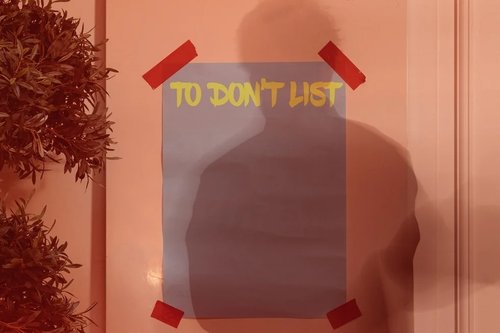Applying for jobs as an underqualified candidate: 7 strategies for success
May 23, 2023
6 mins


Freelance writer and translator, ex-recruiter
Applying for a job as an underqualified candidate may seem like a crazy idea, particularly if you know you’re going to be up against hundreds of other applicants, but Sarah Blakenship, Career Coach and founder of Gen X Nation, would disagree. Not only does she have personal experience of landing jobs as an underqualified candidate she also believes that it never hurts to try. “If you don’t apply you have a 0% chance of getting the role. It will always be 0% for any role you don’t apply for and if you do apply, you never know what may happen.”
Plenty of people do apply for roles they’re not fully qualified for as an Industry Trends Report by Toggl in 2021 demonstrates. 39% of employers said that sifting through a high volume of underqualified candidates was one of their biggest pain points. So how do you know which jobs are worth a shot, and how do you avoid becoming part of the sift pile?
Underqualified or not qualified at all?
While it’s great to advocate taking a chance on yourself and being ambitious, a job search strategy that sends off resumes to anything going is a waste of everybody’s time including your own. There’s no point in applying for jobs you’re totally unqualified for or jobs that have non-negotiable restrictions you can’t meet. Blakenship says, “If you’re completely unqualified do not apply for the role, if you’re applying for the role of a doctor, obviously please don’t apply if you haven’t been to medical school. Not only are you wasting your time but also the time of the recruiters who are having to work through sometimes hundreds of resumes daily.”
Don’t apply for the role if:
- There are citizenship/visa, nationality, or location requirements you simply can’t meet
- There are explicit qualifications or licenses listed and you don’t have them
- You have none of the skills for the job, even in transferable skills
- You have less than 50% of the job requirements.
On the whole, if you have around 70% of the skills needed for the job, then it’s probably worth a shot. Blakenship would suggest being a little more daring and applying if you have 50-60% of the skills along as you have appropriate transferable skills.
How to maximize your chances of getting an interview as an underqualified candidate?
Once you’ve decided to take the plunge and apply, what can you do to maximize your chances of success? Blakenship shares job search strategies to help you land a role as an underqualified candidate.
1. Have a strong resume
When you’re applying for stretch roles that are just a little bit out of reach then Blakenship says a strong resume is the number one piece of job search advice she has. “You want your resume to speak to your achievements. I coach my clients to write their resumes so that a recruiter can see all of their major accomplishments within the first two-thirds of the first page. Make sure the most important things you want the recruiter to see are in the top two thirds of the first page.” You want to include certifications, your major accomplishments, statistics, hard facts, and data that can back up your experience. If you haven’t had the exact experience the company is looking for in a previous role, you want to make sure your transferable skills are clearly stated.
If you work in a junior role but your day-to-day tasks include some senior-level stuff, Blakenship recommends adding the senior title in parentheses so it’s visible and you give recruiters a chance to ask you about it.
It’s also worth considering whether you have an ATS-friendly resume. If the first sift is done by through an automated process, you won’t get through unless you tick the right boxes.
2. Network
Networking is crucial. LinkedIn is a free platform with billions of users and according to Blakenship, “There’s no excuse not to leverage that tool. Reach out to people who have already done what you’re wanting to do. There’s a good chance that they may be able to open some doors for you. It never hurts to talk to someone, it never hurts to ask a question, it never hurts to try to connect with them on Linkedin, the worst that can happen is that they ignore your message or they say no, they’re not open to networking. If that’s the worst that can happen, why wouldn’t you want to take a chance?”
Blakenship makes an important caveat clear too. “In the US the majority of people who land roles do not land them from networking. Networking is great but it should not replace actively applying for roles.” Use it to ask questions or get help on how to interview for a specific role, or if you have an interview at a company try to speak with someone at that company who may be able to share details on the interview process. Connections in the company you want to work for can help your job search as an underqualified candidate.
3. Fake it ‘til you make it
Blakenship explains that she’s a big fan of fake it ‘til you make it as that’s what skyrocketed the trajectory of her own career and got her where she is today. She was able to land roles that were just outside of her reach and to structure herself professionally in ways that she otherwise would not have been able to. “You should never outright lie, because it will come out and you’ll end up losing the job you were able to land. But you should find creative ways to show that you have the experience or you have the potential to be the right person for the role.” It’s about finding the manager or recruiter who’s willing to take a chance on someone with a little less experience so you want to project yourself as someone who has the potential for the role.
Blakenship has another warning on this one: make sure the titles on your resume match your actual job title. “If you were in a junior-level role don’t put on your resume that you were in a senior-level role to pad your resume and make yourself look better, things have a way of coming out in the onboarding process or the verification of employment.”
4. Grow your brand on LinkedIn
Blakenship describes this as a game-changer. “There’s a trend right now where more and more companies are looking at an individual’s profile on multiple social platforms, and they want to know how many followers you have, what kind of engagements you have with those followers. Depending on the role, if you had two candidates, one who has 20,000 followers versus another who has 1000 followers that can be a tipping point for an employer.” Setting yourself up as an expert and growing your brand on LinkedIn helps your job search strategy by conveying you as the right candidate for the role. Social media is the next port of call after looking at your resume and recruiters and employers will look at it to get a better idea of who you are.
Blakenship adds that “Having a strong brand and a strong network never leaves you—you have it forever. So if you continue to build it throughout your career that’s only going to strengthen your community that you have to turn to for future questions and career opportunities.”
5. Target companies that have a company culture of upskilling and personal growth
Blakenship suggests that companies that believe in training individuals and giving them opportunities for upskilling and growth are more likely to take a chance on an underqualified candidate than a company that doesn’t prioritize those values. If a company needs someone in a high-impact role who can hit the ground running, they’re less likely to employ an underqualified candidate. Companies with a strong company culture who are set on finding the right personality fit may employ an underqualified candidate as long as you can demonstrate you are able to handle the role.
6. If you land an interview be prepared to show them why you’re the right person for the role
An interview might mean someone is considering taking a chance on you, but as an underqualified candidate, this isn’t the end of your job search strategy. It’s where the really hard work begins. Blakenship explains “You have to provide examples of why you’re the right person, you have to be able to survive the interview process, you have to effectively answer their questions.” Make sure you research the company, the company culture, and the interview process, have questions to ask, know the points you want to get across, and be ready to interview as effectively as possible.
7. Channel your inner confidence
Blakenship truly believes that confidence sells. “Confidence can go a long way to helping you get your foot in the door for a role that otherwise you might not necessarily have a chance of landing. I’m a great believer in presenting yourself as who you want to become rather than who you are right now. So if you can project yourself as already being the right person skills-wise for the role you’re much more likely to have someone take a chance on you.”
Applying for a job as an underqualified candidate
Remember though you don’t want to be overconfident or arrogant. When applying for a role as an underqualified candidate, Blakenship describes confidence as:
- Being sure of your skills
- Knowing what’s within your wheelhouse
- Knowing the things that might be a stretch but trusting you can learn how to do them.
Photo: Welcome to the Jungle
Follow Welcome to the Jungle on Facebook, LinkedIn, and Instagram, and subscribe to our newsletter to get our latest articles every day!

More inspiration: Applying for jobs

Should you job hunt over the holidays? Tips to beat the new year rush
Searching for a new job to start fresh in 2025? The holiday season might be the right time for you to start the process.
Dec 09, 2024

Introverts & extroverts: Strategies to ace your interview
Job interviews can be tough, whether you're a social butterfly or a quieter introvert. The key to standing out is being yourself.
Aug 20, 2024

Should you be scared of the ghost job trend?
Have you ever been ignored after applying for a job? You may be a victim of the ghost job trend.
Jun 12, 2024

Lost in translation: Decoding bizarre job descriptions
“Candidates with no sense of humor need not apply.” Um …
Jan 25, 2024

Nailing your job search: Writing a to-don’t list for success
Don’t want this, don’t want that … Writing down things you want to avoid in a new job could be your job-hunting key.
Jan 18, 2024
The newsletter that does the job
Want to keep up with the latest articles? Twice a week you can receive stories, jobs, and tips in your inbox.

Looking for your next job?
Over 200,000 people have found a job with Welcome to the Jungle.
Explore jobs